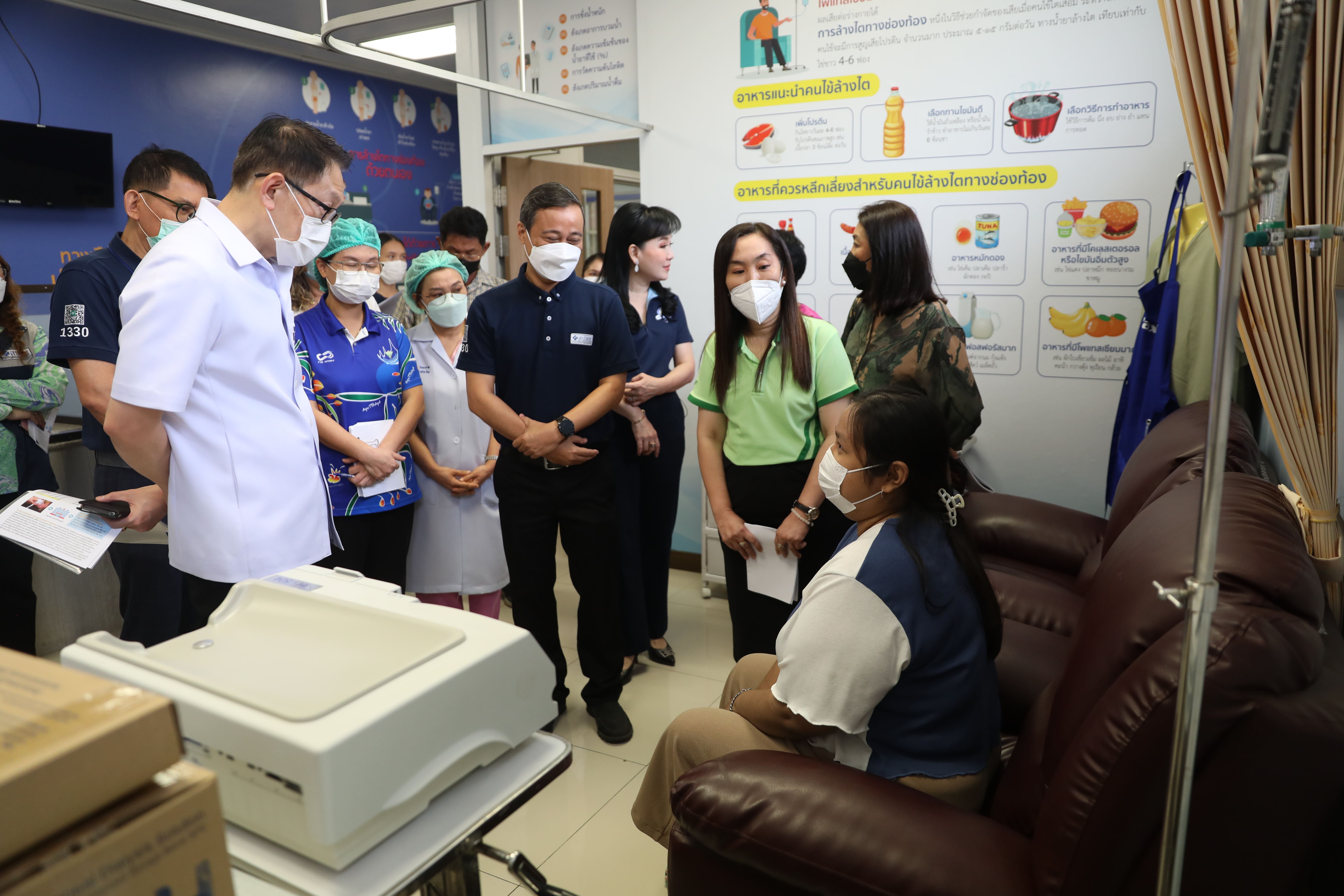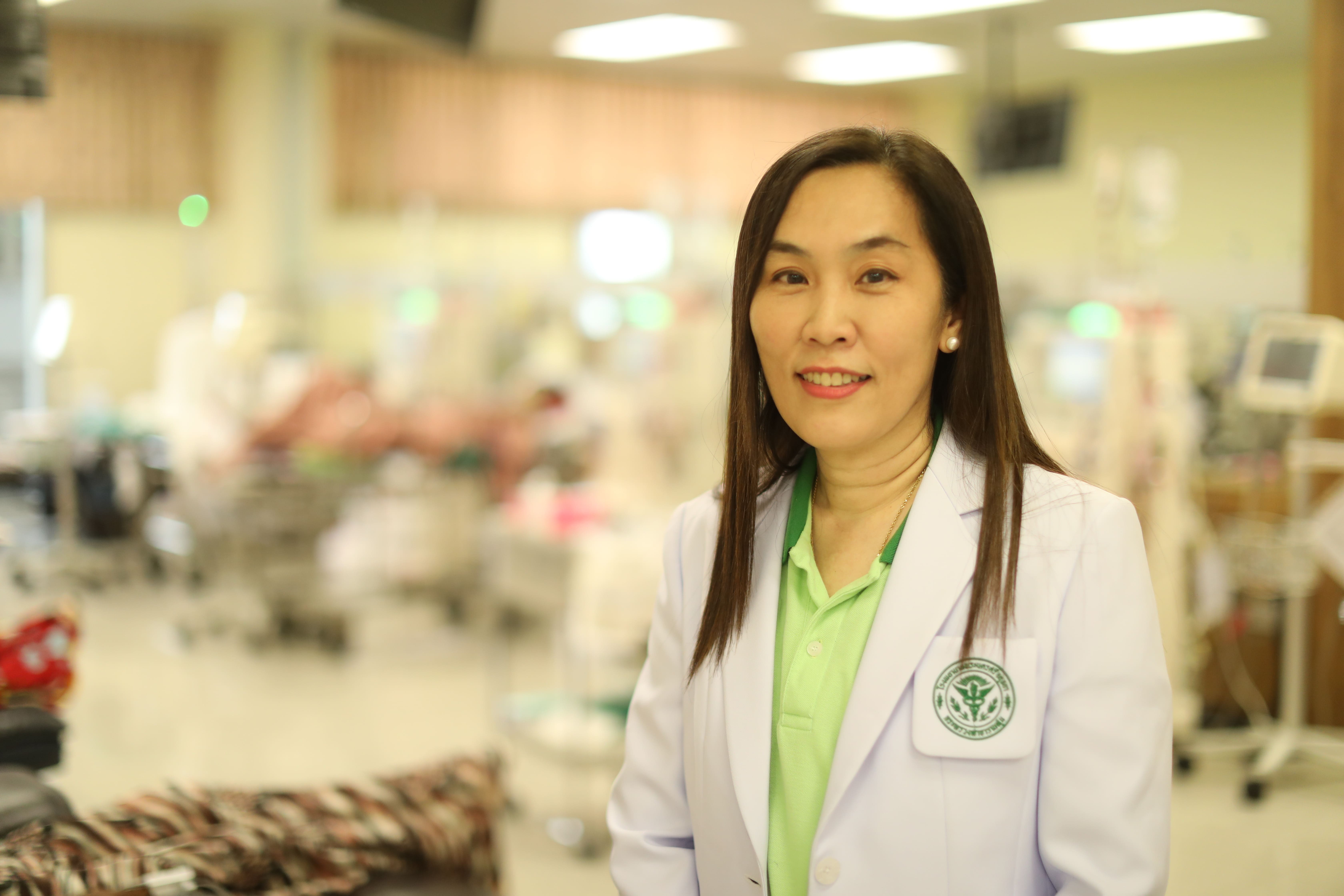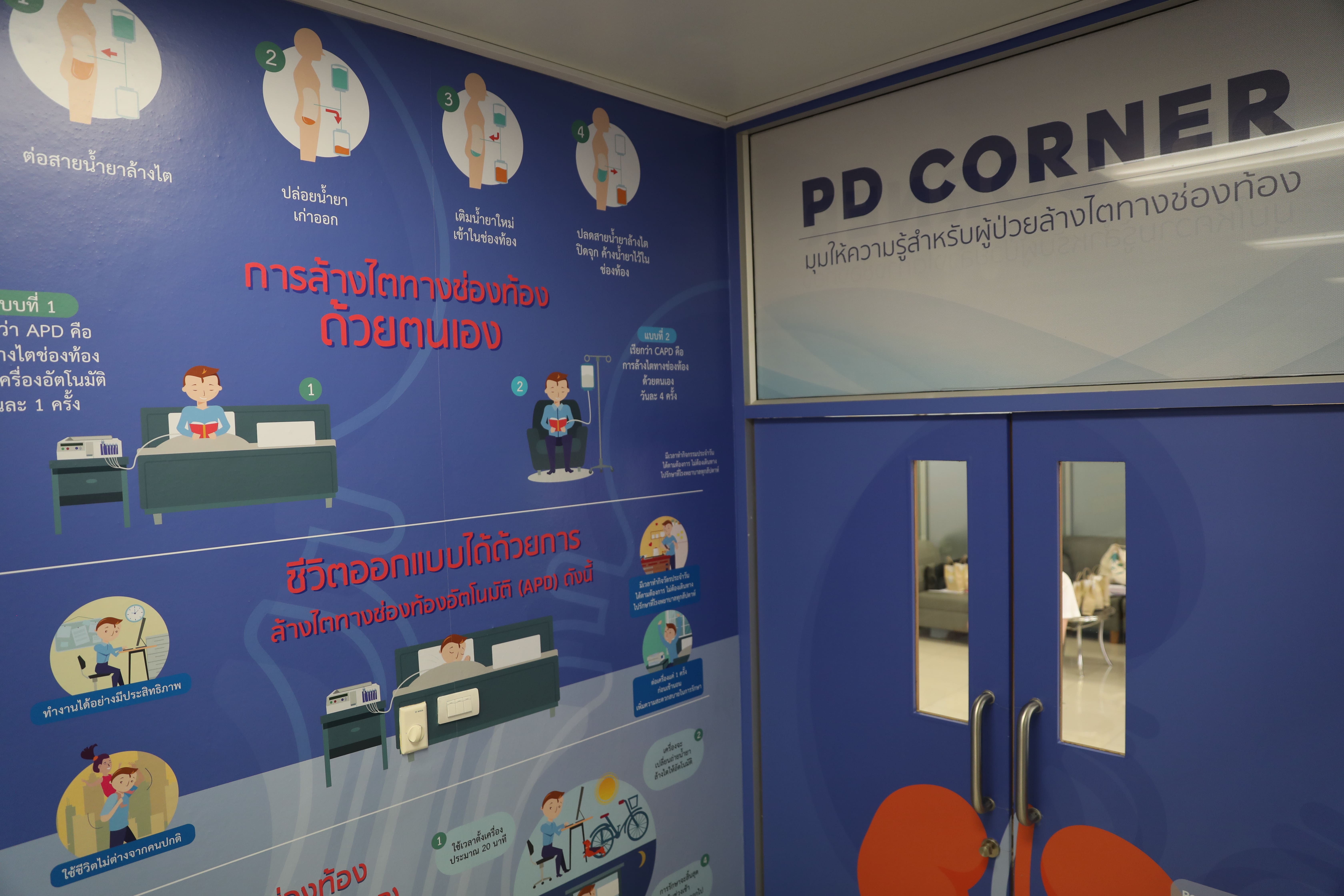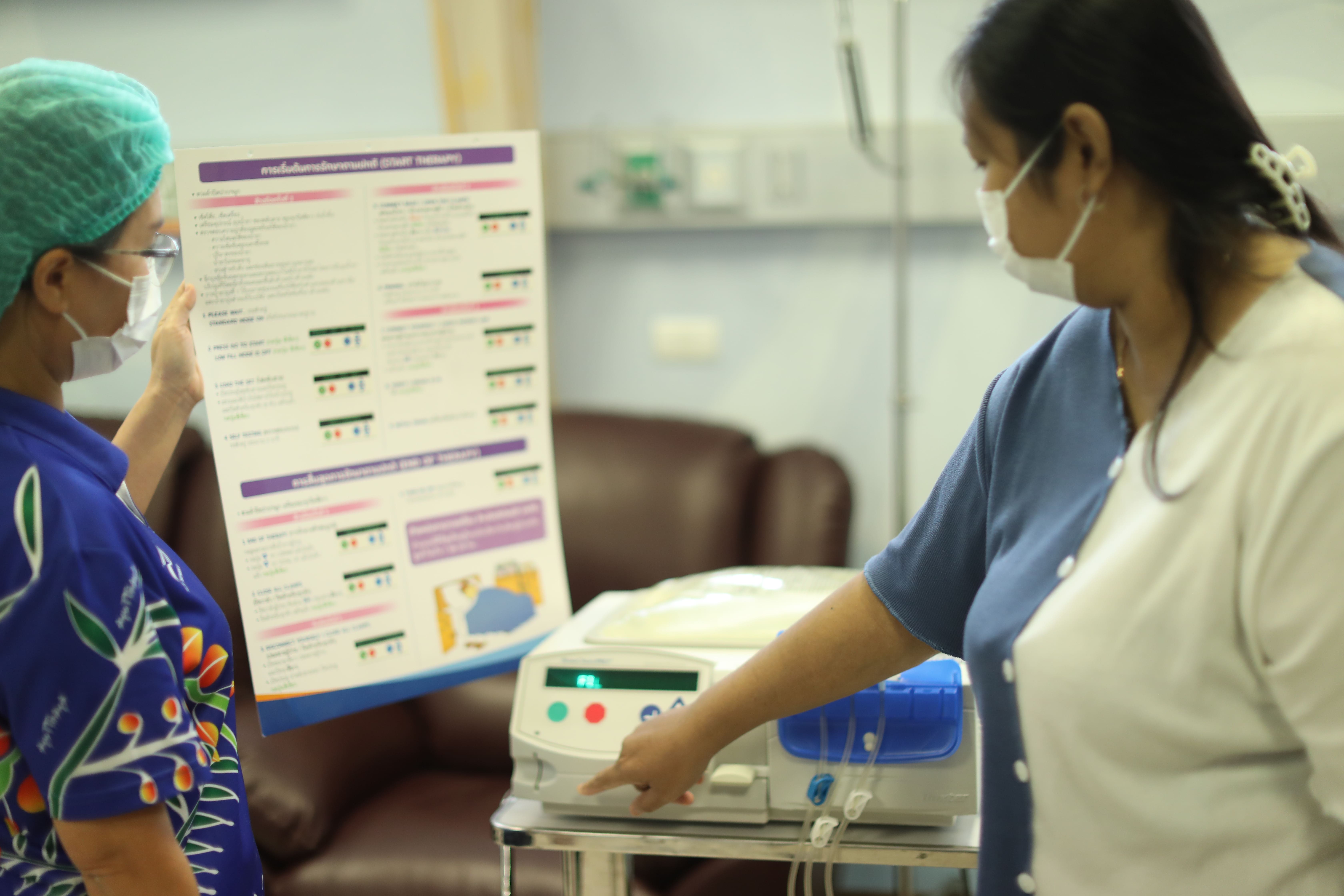
- Home
- DescriptionNews
Access to APD enhances the lives of patients living with kidney disease
A local hospital in Thailand’s central region, Phra Nakhon Si Ayutthaya province provides patients with automated peritoneal dialysis (APD), ensuring effective treatments for chronic kidney disease (CKD) and improving the quality of patients’ lives.
The state-run Phra Nakhon Si Ayutthaya Hospital has collaborated with the National Health Security Office (NHSO) under the Universal Coverage Scheme (UCS) to care for patients living with chronic kidney disease.

On 12 April, the NHSO led by its secretary-general Dr Jadej Thammatacharee visited the hospital to study its kidney disease program that treats more than 100 patients who are still alive.
APD is one of the items included in the benefits package of UCS — the government's healthcare scheme covering healthcare access to 47 million in Thailand.
It is a home therapy option for end-stage kidney disease, using a dialysis machine to deliver and drain the dialysate automatically. Patients can run the machine while they are sleeping, allowing them to have continual sleep and be ready for work the next day.

Saowalak Chaoponetong, a nephrologist and an assistant to the director of Phra Nakhon Si Ayutthaya Hospital, said doctors will consider the patient’s medical and social conditions before providing them with APD.
Many patients performing APD are those who can’t continue with peritoneal dialysis as its effectiveness declines due to abdominal wall defects, or those who are at risk of having complications from pulmonary edema, heart disease, and hypertension.

Some patients can’t perform peritoneal dialysis during working hours due to their responsibilities, including studies and jobs, or they are elderly people with no caregivers.
The hospital staff usually offers training and home monitoring to the patients until they are familiar with APD, the method that can reduce the risk of infection and pulmonary edema symptoms.

Forty-six patients registered with Phra Nakhon Si Ayutthaya Hospital are using APD. The other 79 and 98 performing hemodialysis and home peritoneal dialysis, respectively.
Wachara Kuiduan, 27, is among the patients performing APD since February 2021 under the hospital staff’s guidance.
Initially, he conducted home peritoneal dialysis but found it inconvenient as he had to leave his job every four hours to perform the treatment at home.
.jpg)
His life has become much easier after switching to APD.
“I can perform dialysis while I’m sleeping, then go back to work during the day. If I need to travel, I can carry the machine with me,” he said
Currently, around 2,500 UCS beneficiaries are treated with APD. Between 170 and 200 new patients request APD each month.
The UCS covers all crucial treatments for chronic kidney disease such as hemodialysis and home peritoneal dialysis which are the common treatments among the patients, and kidney transplants which are offered to 600 patients each year.
////////////////////////////////
The state-run Phra Nakhon Si Ayutthaya Hospital has collaborated with the National Health Security Office (NHSO) under the Universal Coverage Scheme (UCS) to care for patients living with chronic kidney disease.

On 12 April, the NHSO led by its secretary-general Dr Jadej Thammatacharee visited the hospital to study its kidney disease program that treats more than 100 patients who are still alive.
APD is one of the items included in the benefits package of UCS — the government's healthcare scheme covering healthcare access to 47 million in Thailand.
It is a home therapy option for end-stage kidney disease, using a dialysis machine to deliver and drain the dialysate automatically. Patients can run the machine while they are sleeping, allowing them to have continual sleep and be ready for work the next day.

Saowalak Chaoponetong, a nephrologist and an assistant to the director of Phra Nakhon Si Ayutthaya Hospital, said doctors will consider the patient’s medical and social conditions before providing them with APD.
Many patients performing APD are those who can’t continue with peritoneal dialysis as its effectiveness declines due to abdominal wall defects, or those who are at risk of having complications from pulmonary edema, heart disease, and hypertension.

Some patients can’t perform peritoneal dialysis during working hours due to their responsibilities, including studies and jobs, or they are elderly people with no caregivers.
The hospital staff usually offers training and home monitoring to the patients until they are familiar with APD, the method that can reduce the risk of infection and pulmonary edema symptoms.

Forty-six patients registered with Phra Nakhon Si Ayutthaya Hospital are using APD. The other 79 and 98 performing hemodialysis and home peritoneal dialysis, respectively.
Wachara Kuiduan, 27, is among the patients performing APD since February 2021 under the hospital staff’s guidance.
Initially, he conducted home peritoneal dialysis but found it inconvenient as he had to leave his job every four hours to perform the treatment at home.
.jpg)
His life has become much easier after switching to APD.
“I can perform dialysis while I’m sleeping, then go back to work during the day. If I need to travel, I can carry the machine with me,” he said
Currently, around 2,500 UCS beneficiaries are treated with APD. Between 170 and 200 new patients request APD each month.
The UCS covers all crucial treatments for chronic kidney disease such as hemodialysis and home peritoneal dialysis which are the common treatments among the patients, and kidney transplants which are offered to 600 patients each year.
////////////////////////////////

